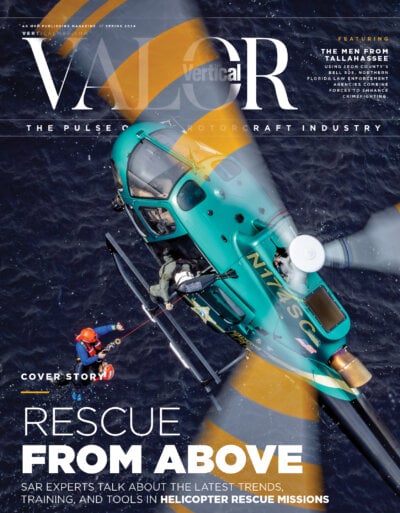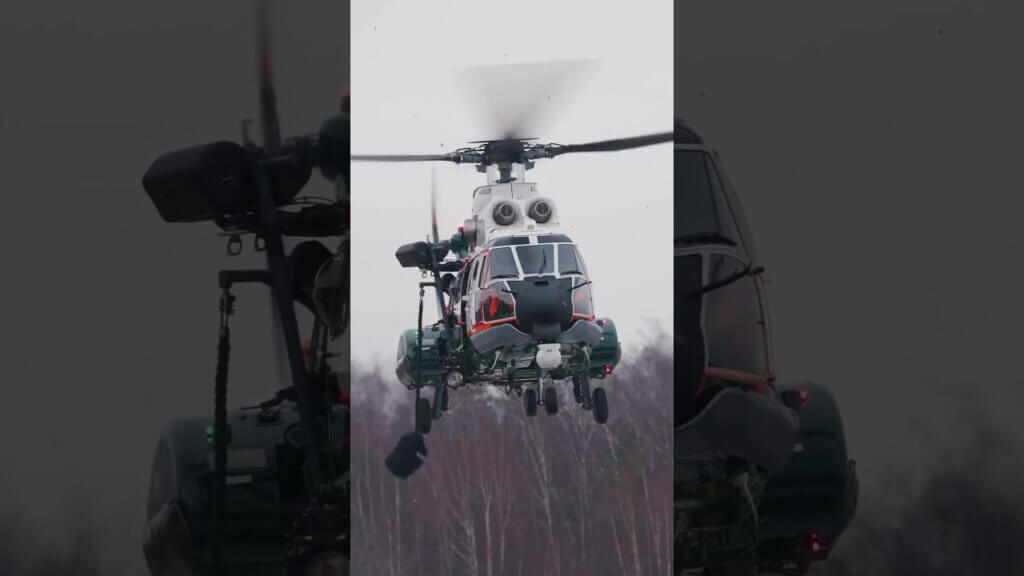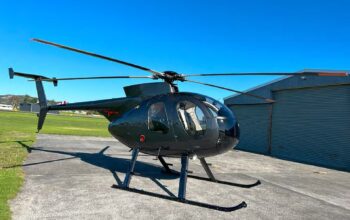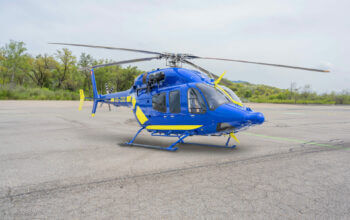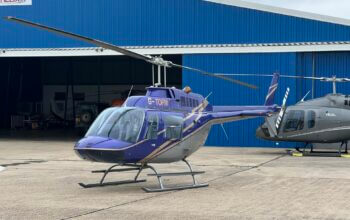On Sept. 11, 2001, Kathy Fox was in charge of Canada’s air traffic control system as assistant vice president of air traffic services. When airliners struck the Twin Towers in New York and the Pentagon near Washington, D.C., she oversaw the complete shutdown of commercial flight in Canada’s airspace.
That blow dealt to Canada’s commercial aviation industry hurt less in retrospect than the gut shot fired by Covid-19, Fox, now chairwoman of the Transportation Safety Board of Canada, said Dec. 1.

“It’s fair to say that we haven’t seen this kind of dramatic decrease in the industry since September 11, 2001,” Fox told the Helicopter Association of Canada’s annual general meeting, held virtually in 2020. “The effects of 9/11 were nowhere near as deep or prolonged as this pandemic is likely to produce.”
Covid-19 and the ongoing restrictions, disruptions and delays to the aviation industry dominated proceedings at the meeting. HAC president Fred Jones said 2020 “has been the worst year in the history of Canadian commercial aviation and not just for helicopter operators, but for virtually every other commercial air operator across Canada.”
“To say this has been a bad year for the Canadian helicopter industry would be a gross understatement,” Jones added.
Many aircraft have been grounded since the pandemic hit Canada mid-March, just as the commercial helicopter industry was readying for the spring/summer season. Like elsewhere in the world, only essential services like air ambulance and search-and-rescue operations did not come “to a grinding halt,” Jones said.
“Spring training, recurrent training, PPCs, ground schools, flight training, flight testing and all travel stopped,” he said. “Virtually everything stopped. Many contracts and operations, all but essential services, were postponed or canceled altogether.”
There has been a slow return to business as usual, but with a historically slow fire season — with operations 90 percent down compared to a normal year — and ongoing international travel restrictions into Canada and across the U.S. border threatening heliskiing season, the hits keep on coming, Jones said.
“It has become evident to HAC that a significant number of operators in the face of these limitations have either laid up their aircraft, have closed their doors or worse, have gone out of business altogether,” Jones said.
Fox recognized that even though helicopters are again allowed to carry passengers, many sectors like oil-and-gas and VIP transport simply have not bounced back. The return to normalcy, she said, was more difficult to manage safely and took longer after 9/11 than it did to shut it down in the first place.
“People have since remarked to me how hard that must have been, how difficult, to shut it all down so fast and so safely,” Fox said. “The actual truth of it is, that it is easier to shut everything down than it was to get everything up and running again afterward once the restrictions had been lifted and normal air travel was allowed to resume.”
“Eventually all of this will end,” Fox added. “The pandemic will end. Flying will resume. Air travel will resume. It will take time, of course, for people to regain their confidence, but they will come back because people want to and need to travel. And when that time comes, we’ll be facing another unprecedented situation, and one that will bring many questions.”
According to Jones, Transport Canada recognized the need for a smooth and speedy return to operations by offering some extensions and workarounds for training requirements. But the agency did not escape criticism for moving forward with new regulations. Drawing particular ire are new rules for monitoring and managing pilot fatigue. Aimed primarily at airlines, the new regulations are destined to hit the commercial helicopter industry as well, Jones said.
“You would think that in a pandemic, where the crippling economic effects are felt most, the regulatory issues with significant economic impact on carriers would be postponed at least until the pandemic is behind us and the fragile recovery process for our industry has started,” he said. “The one-two punch of the pandemic and new, costly regulations will put more than one operator on the ropes in an industry that’s already vulnerable.”
Amongst other changes, the new regs reduce the permitted length of a work tour from 42 days to just 17 days. Pilots also will need 36 hours of time off in every seven days. They eliminate the so-called “zeroing” principle, which states that if a pilot is given five days off in a row, it zeroes their accumulated flight time and gives them a fresh start.
Jones said moving ahead with implementation of the new regulations was “the height of insensitivity on the part of the minister,” and even though the dates for enforcement of the rules in the helicopter industry have been pushed two years, they “still loom large with disastrous potential,” he said.




